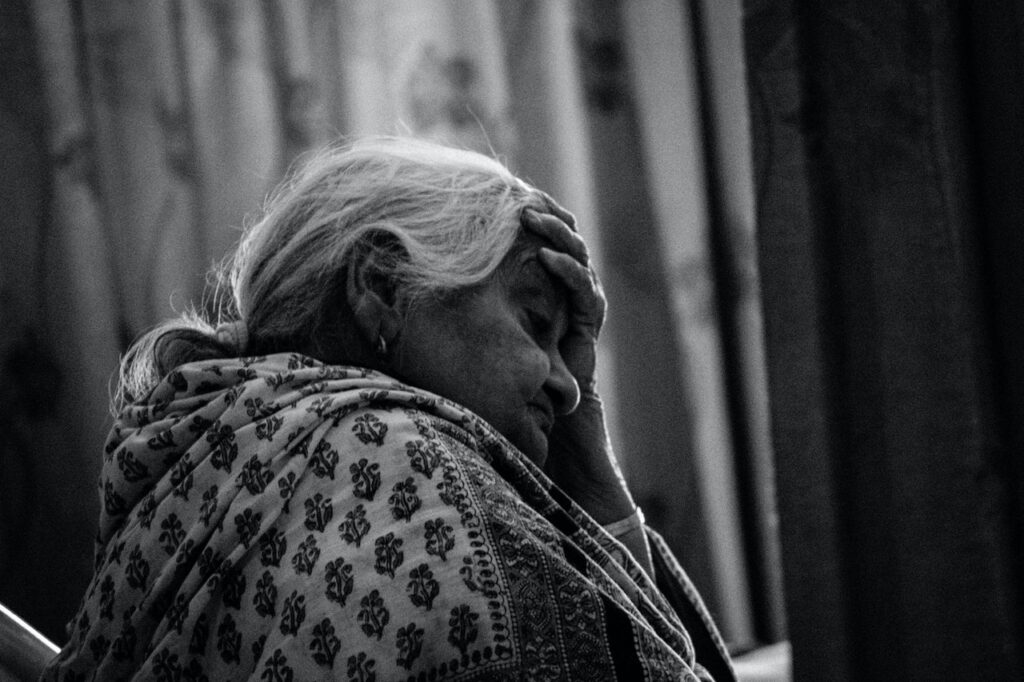KUALA LUMPUR, May 6 – Almost half of elderly people in the Klang Valley reported an increase in depression during the Covid-19 pandemic, a local study found.
In terms of changes in psychological factors, approximately 47 per cent of participants aged above 55 in a Universiti Malaya (UM) study mentioned an increase in depression, while 21 per cent cited increased anxiety.
About 34 per cent of participants experienced higher stress during the pandemic.
UM’s “Effect of Covid-19 on Psychological Wellbeing and Quality of Life of Older Adults in the Malaysian Elders Longitudinal Research (MELoR)” measured the mental wellbeing of people aged above 55 under three categories – anxiety, depression, and stress.
This longitudinal cohort study involved a total of 706 participants aged 55 and above in the Klang Valley. There were a total of 421, or 59.6 per cent, female participants, while 285 (40.4 per cent) were male participants.
Total participants comprised 180 Malays (25.5 per cent), 275 ethnic Chinese (39 per cent) and 240 ethnic Indians (34 per cent).
About 54.3 per cent of Malay, 50.6 per cent of ethnic Chinese, and 38.7 per cent of ethnic Indian participants reported an increase in depression levels during Covid-19, according to Kiirtaara Aravindhan, a graduate research assistant at UM.
“Baseline interviews were conducted between 2013 to 2015 while follow up virtual interviews were conducted September to December 2020,” Kiirtaara said at the Malaysian Hybrid Conference on Healthy Ageing (MCHA) on March 17.
“The mean age of participants were approximately 73 years old and the majority of participants were female, married and had received at least secondary education.
“Only 4.8 per cent of our participants lived alone,” Kiirtaara said.
From the total participants, 43.2 per cent reported a drop in their quality of life during the Covid-19 pandemic.
“In terms of quality of life, a narrow majority of our older adults experienced increased or no changes in their quality of life,” Kiirtaara added.
This study was aimed at looking into how the Covid-19 pandemic changed the lives and mental health of Malaysia’s older adults by identifying differences in quality of life before and during the Covid-19 pandemic, and determining the influence of psychological status on changes in quality of life among older adults.
Based on a multivariate analysis to observe the influence of psychological status on older adults quality of life, the study found that increased levels of depression, anxiety, and stress before and during the pandemic, as well as current anxiety, depression, and stress were independent risk factors for reduced quality of life.
“Some of the key takeaways from this study that we found is that anxiety, depression and stress levels as well as presence of increased anxiety, depression and stress had a negative effect on the quality of life of older adults,” Kiirtaara said.
The study also found that the older adult population in Malaysia generally had a good quality of life and psychological status.
Kiirtaara said this was probably due to the emphasis of filial piety (a parent-child relationship), which is at large in the Asean society.
“Therefore, in times of crisis, our community as a whole ensured that the older adult population is provided for.
“Most of our older adults were raised during the Japanese occupation and communist insurgency. So movement control orders and the curfews during Covid-19 were nothing new to them.”
Kiirtaara also highlighted that older adults saw lower anxiety levels during the pandemic as compared to before.
“While all of us experienced loss of social activity, this loss did not negatively influence our older adults’ mental health, which could also imply the possibility of low social activity among our older adults even before the pandemic.
“Only 4.8 per cent lived alone and the rest were surrounded by their family members, which probably made them very happy, very relaxed, and they were able to obtain all the support they needed in the time of crisis.”
Kiirtaara noted that this study has provided novel insight towards the impact of current as well as change in psychological status on quality of life among older adults.
She added that Covid-19 pandemic has had irreversible repercussions on all our lives.
“The over-18 month movement control order imposed in Malaysia was inconvenient to say the least, but mostly mentally challenging.
“We can only imagine how it would have been for our older adults who had to be shielded due to their vulnerability.”
Kiirtaara said the study not only emphasised urgent attention directed towards the mental health of older adults, but also advocates the importance of maintaining quality of life among older adults with and without the presence of a pandemic.
“Quality of life is not spoken enough here in Malaysia,” she said.
“The findings obtained are invaluable in informing and urging development of strategies focused on older adult mental health to mitigate the effects of the pandemic on their quality of life.
“Future studies should probably expand research of this sort by incorporating an intervention and then do a comparison before and after.”








